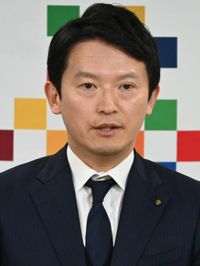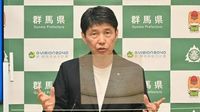On March 26, 2025, Governor Motohiko Saito of Hyogo Prefecture publicly apologized during the final session of the February regular meeting of the Hyogo Prefectural Assembly. His apology came after a year marked by serious allegations of power harassment against him, following accusations made by a deceased former director of the Mainichi Broadcasting Hyogo Bureau, known only as X. This document detailed seven allegations against Saito, including claims of power harassment.
In a report released on March 19, 2025, a third-party committee established by the prefecture confirmed 10 out of 16 allegations related to power harassment against Saito. The committee also criticized Saito's attempts to identify the whistleblower, stating that such actions violated the Whistleblower Protection Act. This report has intensified scrutiny on Saito's leadership and conduct.
During the assembly, Saito expressed his remorse, stating, "I sincerely want to admit my shortcomings and apologize to the staff for any discomfort or burden caused." However, his sincerity was questioned as he repeatedly insisted on the need to stop what he termed as false accusations during a press conference later that day. In fact, he mentioned this phrase around 30 times within an hour, leading many to doubt the authenticity of his apology.
When pressed by reporters for a straightforward admission of guilt regarding the power harassment findings, Saito responded, "Regarding the recognition of power harassment... I want to admit it." This statement, while appearing to acknowledge the findings, seemed reluctant and was interpreted by many as an attempt to avoid fully accepting responsibility.
Despite the committee's findings, Saito has denied any personal punishment or wrongdoing, asserting, "It is my responsibility to correct my behavior and properly carry out my duties." This has raised concerns about his accountability in light of the serious allegations against him.
Adding to the complexity of the situation, a prefectural employee disclosed that the apology delivered during the assembly was not genuinely Saito's own words but rather crafted by his subordinates. This revelation further undermined the credibility of his public statements.
In a troubling directive issued shortly after the third-party committee's report, Saito instructed his staff to create an apology that would sound sincere while maintaining his reluctance to fully acknowledge the allegations. This request has drawn criticism from various quarters, with one official reportedly responding, "Such a thing is impossible." This highlights the ongoing tension and dissatisfaction among county staff regarding Saito's leadership.
The issue of harassment and accountability in the Hyogo Prefectural government has broader implications, especially in light of recent events involving other harassment cases in Japan. For instance, a female announcer, referred to as Aana, reported severe psychological distress following a harassment incident, leading to hospitalization and a PTSD diagnosis. Such cases have sparked discussions about workplace culture and the treatment of employees in various sectors.
In a related context, Gunma Governor Ichita Yamamoto commented on Saito's situation during a press conference on April 3, 2025. He emphasized that power harassment and sexual harassment are unacceptable, stating, "Such behavior should not exist." Yamamoto expressed concern over the implications of a no-confidence motion against an elected governor, suggesting that while accountability is essential, the definitions of harassment need to be carefully considered to avoid excessive self-censorship.
The Hyogo Prefectural Assembly has also established a special investigation committee to further look into the allegations against Saito. This committee's formation reflects the gravity of the situation and the demand for thorough accountability in light of the serious findings presented by the third-party committee.
Despite the mounting pressure, Saito has remained defiant, refusing to accept the committee's conclusions, which deemed his actions illegal. His stance raises questions about his qualifications as a public servant, especially given the emotional toll these allegations have taken on individuals involved, including the late whistleblower.
Moreover, the third-party committee's report highlighted a significant lack of communication within the prefecture's administration, attributing some of the power harassment issues to a culture of homogeneity and insufficient dialogue. Saito, who became the youngest governor in postwar Japan at the age of 43, has often relied on a close circle of advisors from his previous roles, leading to a disconnect with the broader staff.
As the situation unfolds, it remains to be seen how Saito will navigate the ongoing scrutiny and whether he will implement the necessary changes to foster a more transparent and communicative workplace environment. The call for harassment prevention training, which has yet to be implemented nearly four months after being requested, underscores the urgent need for reform within the Hyogo government.
In summary, the allegations against Governor Saito represent a significant challenge to his administration, highlighting the critical need for accountability, transparency, and a commitment to fostering a respectful workplace culture. As the investigation continues, the eyes of the public and the media remain fixed on Hyogo Prefecture, awaiting decisive action from its leadership.









